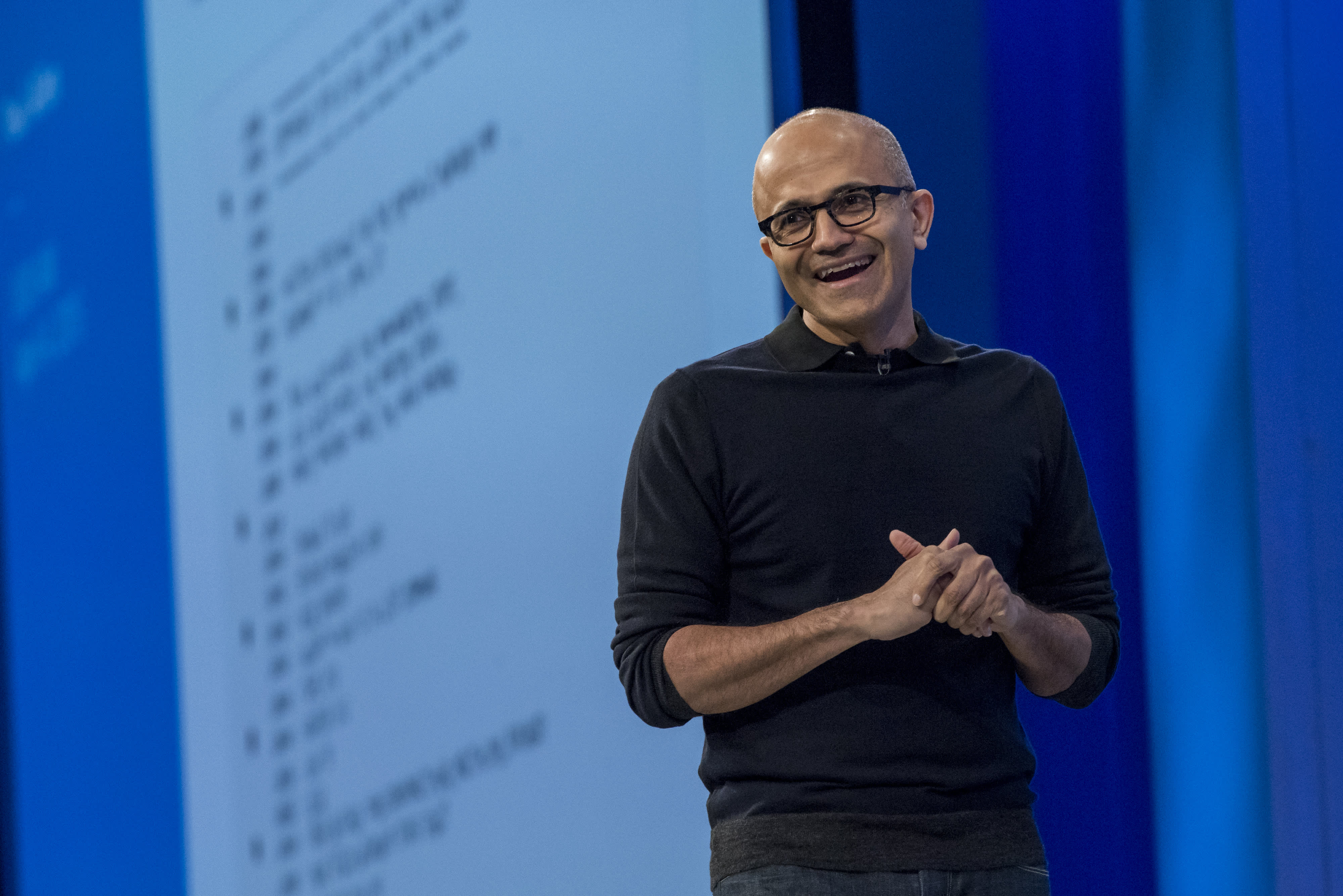Microsoft CEO Satya Nadella teases big Windows update at Build

Satya Nadella, chief executive officer of Microsoft Corp., speaks during a keynote session at the Microsoft Developers Build Conference in San Francisco, California, U.S., on Wednesday, April 29, 2015.
David Paul Morris | Getty Images | Bloomberg
Microsoft kicked off its annual Build conference for software developers on Tuesday by making a slew of cloud product announcements, and the company indicated that its Windows operating system will be getting better for developers, too.
Keeping developers interested in its platforms is important for Microsoft. The company needs to ensure that programmers want to choose its Azure public cloud over rivals. If developers become less interested in building and updating apps for Windows, organizations might consider moving to alternatives, which could threaten a meaningful piece of Microsoft’s business.
“Soon we will share one of the most significant updates of Windows of the past decade to unlock greater economic opportunity for developers and creators,” Microsoft CEO Satya Nadella said during his keynote at the virtual conference. “I’ve been self-hosting it over the past several months, and I’m incredibly excited about the next generation of Windows.”
He continued, “Our promise to you is this: We will create more opportunities for every Windows developer today and welcome every creator who is looking for the most innovative, new, open platform to build and distribute and monetize applications.”
In conjunction with the event, Microsoft released a 43-page “book of news” detailing its updates. Many are incremental, although the company did unveil a few notable new products. Here are the highlights:
- Windows on Arm developer kit. Microsoft has promoted third-party Windows 10 devices that contain energy-efficient Arm chips, and it has also shipped Surface PCs running on Arm. This summer, the company will take the next step and start selling an affordable Windows PC running Arm that’s meant to make it easier for developers to get their Windows apps running well on 64-bit Arm devices, not just traditional Intel or AMD-based systems.
- Tools for cloud calling. Last year, after Microsoft Teams grew more popular as a way for coworkers to stay in touch remotely, the company announced the launch of Azure Communication Services. The same systems that Teams uses for running calls and chats became accessible to third-party developers as application-programming interfaces. Next month, Microsoft will start a preview of recording of calls in audio and video format, just like in Teams. Plus, there are new open-source user-interface components developers can plug into applications when working with Azure Communication Services.
- More Azure Arc support. Increasingly, the top cloud providers are making it possible for developers to run cloud services in alternative environments. In 2019 Microsoft announced Azure Arc, giving customers a means to consume resources from competing clouds such as Amazon Web Services or Google Cloud Platform and then managing the resources through Azure. Now Microsoft is previewing Arc support for more of its cloud services, including the Azure App Services, Azure Functions, Azure Logic Apps and Azure API Management.
- Blockchain data storage. Microsoft announced the preview of Azure Confidential Ledger, a tool for storing critical data. Microsoft said the service runs on special hardware-secure enclaves and is tamper-proof — data cannot be erased or modified.
- Teams customization. As more people flocked to Teams last year, Microsoft introduced Together mode, a way to view all video-call participants in a virtual group setting with a unified background, such as a classroom. This summer, Microsoft will permit developers to customize scenes for Together mode. Developers will also get access to audio and video feeds, with which they can build new features into Teams, such as translations and notes.
- Easier collaborations between professional developers and non-technical staff. The Power Platform is Microsoft’s group of applications that business users without coding savvy can use to build software. Now Microsoft is thinking about how to improve collaborations between those people and their more technical colleagues. The company has been building updates to its Visual Studio and Visual Studio Code applications that will make it easier for developers to package up resources that non-technical people can then access in the Power Platform.
- Artificial intelligence for writing code. Perhaps the most exciting technical feat Microsoft showed at Build is a new way to harness the GPT-3 artificial-intelligence model from San Francisco start-up OpenAI. Inside the Power Apps Studio application for writing software, non-technical people will be able to type in words describing what they want to add to an app, and GPT-3 will generate candidates for the necessary underlying code in Microsoft’s Power Fx programming language. Users can choose the formulas they want based on the suggestions.
You can find the full “book of news” here.
WATCH: Cloud software is here to stay post-pandemic, says Bessemer’s Deeter